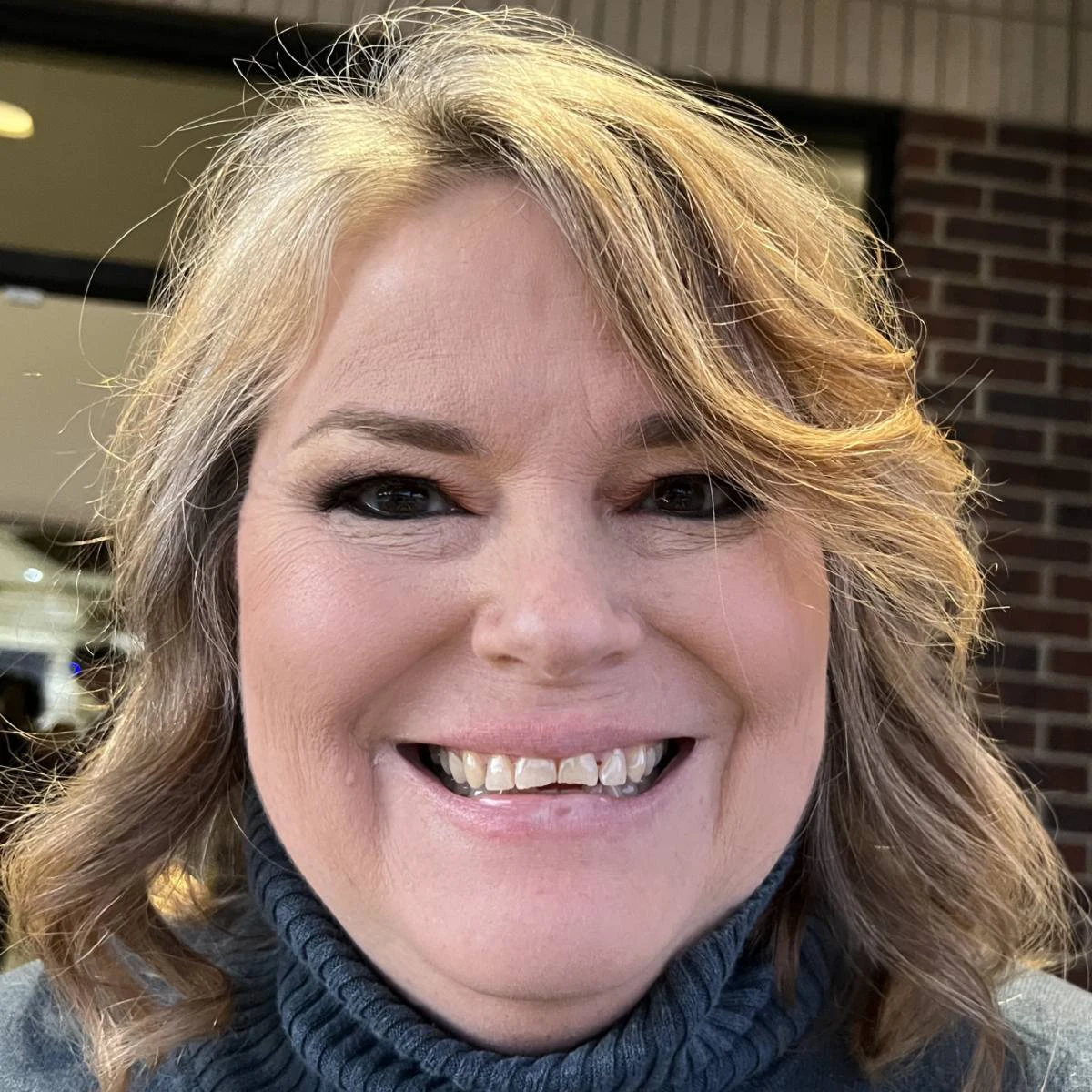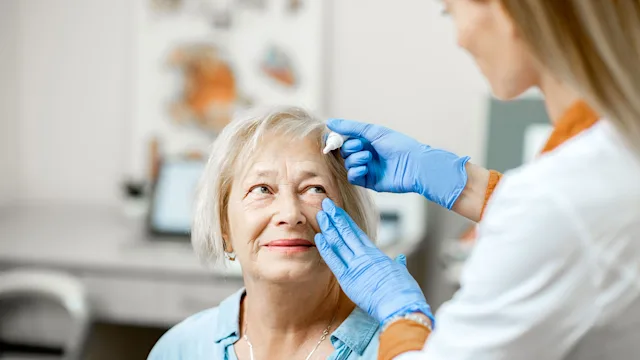Key takeaways:
Cataract surgery is a common procedure to remove a cloudy eye lens and replace it with an artificial one.
Three people who had cataract surgery shared some of their top advice, such as being sure to choose your eye doctor wisely.
They say doing some research into doctors and the procedure can help you have realistic expectations.
For those of us who live to be octogenarians, it’s possible we will develop a cataract — a cloudy eye lens — in one or both eyes.
More than half of Americans who are 80 and older have cataracts or had surgery to remove them, according to the National Eye Institute, which is a part of the National Institutes of Health.
That’s the bad news. But there is good news: Cataract surgery can fix blurry vision, faded colors, and light sensitivity.
Search and compare options
Here is what three patients have to say about their experiences having cataract surgery.
Choose your ophthalmologist carefully
Nanette Stark, who is 78 and lives in Gilbert, Arizona, has endured two cataract surgeries. The first was in 1999 with her left eye, and later with her right eye.
Before the surgeries, she had cloudy, blurry vision. She says the surgeries saved her from going blind.
But several years later, while Nanette was being treated for glaucoma, her new doctor asked: “Who did your cataract surgery?” The doctor said the lens depth seemed incorrect, and the left lens looked like it had been jammed in.


Although her overall vision improved significantly and the surgery and recovery were not painful, Nanette still has to wear glasses for both up-close reading and far vision as a result.
“I was just looking forward to not having to wear glasses to drive,” she says. “Now, I can see clearly, but it’s not my expectation.”
Read more like this
Explore these related articles, suggested for readers like you.
Nanette says she isn’t confident her first surgeon had enough expertise with cataract surgeries. She says she wishes she would have asked for recommendations and read online reviews. She would have asked more specific questions and been clear about her expectations.
“Do your homework with your doctor,” says Nanette, a retired high school teacher. “Choose the best one you can get.”
She adds this advice: “Don’t assume anything. Talk to your doctor and find out exactly what he’s going to do, what the expectation is, and how you’ll be able to see and how far. Find out the type of lens the doctor will put in. Be very specific about what you expect and what he thinks the outcome will be.”
When it comes to your eyes, no pain is a big gain
Jon Clark, of Peoria, Arizona, is a veteran of both the National Guard and eye surgeries. He has undergone three surgeries on his right eye, and two on his left — including surgery for a detached retina on the right and a cataract on the left.
His vision deteriorated significantly after an accident in 2009, when Jon was on the roof of his house putting up Christmas decorations. He fell and had a concussion and traumatic brain injury. Lingering effects caused him to lose almost all vision in his right eye. Maintaining vision in his remaining good eye — which was becoming cloudy — became a big priority. So, in 2016, Jon underwent cataract surgery on his left eye.
“The only thing I had to be concerned about was protecting my left eye, because it’s all I have,” says Jon, 63, a forms designer at a bank. “I often wear sunglasses and goggles to protect my eyes.”


The cataract surgery itself was painless, Jon recalls. The only painful part was getting the IV inserted. This happened before the numbing injections in the eye, for which he was asleep. But Jon was awake during the actual surgery so he could respond to instructions about eye movements. Recovery was quick and fairly easy, he says, and the post-op instructions were simple to follow.
Now, Jon’s vision is basically 20/20. The lens that replaced his cataract-covered lens is like an internal contact lens.
“Once the bandages came off, over 4 to 6 hours, gradually, my vision returned to absolutely perfect as far as distance,” Jon says. “I couldn’t believe how well I was seeing at a distance.”
He recommends that people affected by cataracts get this surgery. But like Nanette, Jon advises choosing your physician carefully. To find a good doctor, ask for suggestions, read about them, and look at online reviews, he says. Jon suggests discussing the various lens choices with your doctor before the surgery. Some people have lenses to see up close, while others have lenses for far away.
Do your homework before having cataract surgery
Cynthia Krasne had cataract surgery on both eyes a week apart. Now she jokes that she has designer eyes — with a different replacement lens she chose for each eye.


Cynthia, who is 73 and lives in Lebanon, Pennsylvania, had the surgeries done about 6 years ago because she had trouble seeing at night. She attributed it to old age, but she decided to consult an ophthalmologist. The doctor tested her and told Cynthia the unfortunate news that she had cataracts.
“I’m the type of person that does their homework,” she says. “I walked in with 15 million questions. And he was absolutely terrific in answering my questions.”
Cynthia, who had worn glasses and contact lenses since she was a teenager, had high hopes for the surgery. She thought finally this procedure might free her of needing any more vision correction. But she tempered her expectations after talking to her doctor.
“I thought when you had your cataracts removed, it literally brought you back to 20/20 vision where you’d never have to wear glasses again,” she says. “He said, ‘No that’s not the case. You’ll probably still need glasses for reading.’”
Despite being nervous and disappointed, Cynthia still went ahead with the surgeries. She says they were painless.
“They gave me a sedative or something that just helps calm you down. Then they put in your eyes what numbs it,” she recalls. “They put this gadget in your eye. All you see is this big bright light shining at you. There are no side effects, and nothing hurts.”
Cynthia chose to mix and match her replacement lenses. Her right eye has good distance vision, and the left eye has good close-up vision. She says she hoped she could still come out of the surgery with practically perfect vision. Her eyes adapted, and Cynthia can see both near and far, mostly without glasses. With such positive results, she recommends cataract surgery for people who need it.
“My best suggestion: Do your homework. Come prepared with questions, and talk to other people who have had it done,” she says.

Why trust our experts?





















